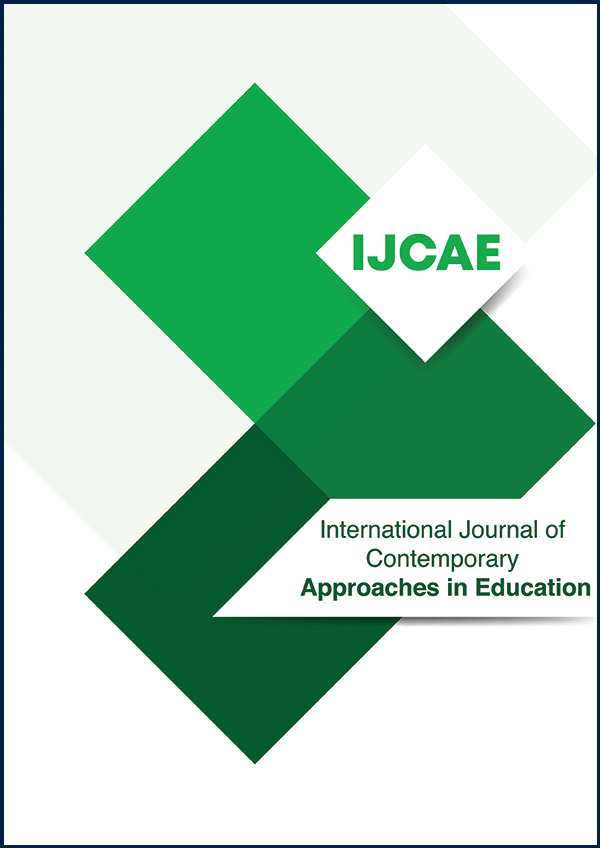- Aca, G. (2020). Investigation of the relationship between high school students’ enneagram persolnality types and social network addiction levels [Unpublished master dissertation]. Marmara University. [Google Scholar]
- Amichai-Hamburger, Y. and Vinitzky, G. (2010). Social network use and personality. Computers in Human Behavior, 26(6), 1289-1295. https://doi.org/10.1016/j [Google Scholar] [Crossref]
- Bilginer, A. (2020). Examining the relationship between high school students' self-efficacy and social media addiction Unpublished master dissertation]. Çağ University. [Google Scholar]
- Blackwell, D., Leaman, C., Tramposch, R., Osborne, C. and Liss, M. (2017). Extraversion, neuroticism, attachment style and fear of missing out as predictors of social media use and addiction. Personality and Individual Differences, 116, 69-72. https://doi.org/10.1016/j.paid.2017.04.039 [Google Scholar] [Crossref]
- Bland, A. M. (2010). The Enneagram: A review of the empirical and transformational literature. The Journal of Humanistic Counseling, Education and Development, 49(1), 16-31. https://doi.org/10.1002/j.2161-1939.2010.tb00084.x [Google Scholar] [Crossref]
- Büyüköztürk, Ş., Kılıç Çakmak, E., Akgün, Ö. E., Karadeniz, Ş. and Demirel, F. (2010). Bilimsel araştirma yöntemleri [Scientific research methods]. Pegem A Akademi. [Google Scholar]
- Byun, S., Ruffini, C., Mills, J. E., Douglas, A. C., Niang, M., Stepchenkova, S., Lee, S. K., Loutfı, J., Lee, J. K., Atallah, M. and Blanton, M. (2009). Internet addiction: Metasynthesis of 1996-2006 quantitative research. Cyberpsychology & Behavior, 12(2), 203-207. https://doi.org/10.1089/cpb.2008.0102 [Google Scholar] [Crossref]
- Correa, T., Hinsley, A. W. and De Zuniga, H. G. (2010). Who interacts on the Web?: The intersection of users’ personality and social media use. Computers in Human Behavior, 26(2), 247-253. https://doi.org/10.1016/j.chb.2009.09.003 [Google Scholar] [Crossref]
- Çakır, B. (2018). An investigation of the relationship between social media addiction, narcissism and empathy level in adults [Unpublished master dissertation]. Üsküdar University. [Google Scholar]
- Çolak, Ç. H. (2020). Examination of social media addiction and emotion regulation skills in high school students according to the personal characteristics and various variables [Unpublished master dissertation]. Sakarya University. [Google Scholar]
- Dinç, S. B. (2020). From narcissistic personality patterns to social media addiction: the mediating role of emotion regulation skills and cognitive distortions [Unpublished master dissertation]. Başkent University. [Google Scholar]
- Erçin, H. Ş. (2018). Evaluation of the relationship between healthy lifestyle behaviors and enneagram personality types [Unpublished master dissertation]. Ankara Yıldırım Beyazıt University. [Google Scholar]
- Ganjayeva, N. (2019). Investigation of the relationship between social media addiction, eysenck's personality inventory and self-confidence in university students [Unpublished master dissertation]. Üsküdar University. [Google Scholar]
- Garson, G.D. (2012). Testing statistical assumptions. Statistical Associates Publishing [Google Scholar]
- Gültekin, M. (2019). A study of internet addiction levels of primary school and secondary school final year students (the example of Adıyaman province) [Unpublished master dissertation]. İnönü University. [Google Scholar]
- Karaman, M. K. and Kurtoğlu, M. (2009, February 11-13). Öğretmen adaylarının internet bağımlılığı hakkındaki görüşleri [Pre-service teachers' views on internet addiction] [Conference presentation]. XI. Academic Informatics Conference, Harran University, Şanlıurfa, Turkey. https://www.guvenliweb.org.tr/dosya/2wHMI.pdf [Google Scholar]
- Karasar, N. (2007). Bilimsel araştırma yöntemi [Scientific research method]. Nobel Yayın Dağıtım [Google Scholar]
- Kurt, A. (2019). Individual differences in the personal sales process: a research on enneagram typology [Unpublished master dissertation]. Maltepe University. [Google Scholar]
- Maddux, J. F. and Desmond D. P. (2000). Addiction or dependence? Addiction, 95, 661- 665. https://www.proquest.com/openview/c1d856c4f7c40bb4fdacf678d73d3990/1?pq-origsite=gscholar&cbl=37458 [Google Scholar]
- Mehdizadeh, S. (2010). Self-presentation 2.0: Narcissism and self-esteem on Facebook. Cyberpsychology, Behavior, and Social Networking, 13(4), 357-364. https://doi.org/10.1089/cyber.2009.0257 [Google Scholar] [Crossref]
- Rıhtım, B. Z. (2020). Study of the correlation between social media addiction and fragile narcissism and virtual environment loneliness levels in university students [Unpublished master dissertation]. Haliç University. [Google Scholar]
- Riso, D. R. and Hudson, R. (1999). The wisdom of the Enneagram: The complete guide to psychological and spiritual growth for the nine personality types. Bantam Books. [Google Scholar]
- Ross, C., Orr, E. S., Sisic, M., Arseneault, J. M., Simmering, M. G. and Orr, R. R. (2009). Personality and motivations associated with Facebook use. Computers in Human Behavior, 25(2), 578-586. https://doi.org/10.1016/j.chb.2008.12.024 [Google Scholar] [Crossref]
- Subaş, A. ve Çetin, M. (2017). Enneagram kişilik ölçeğinin geliştirilmesi: Güvenirlik ve geçerlilik çalışması [The development of the enneagram personality test: a study of reliability and validity]. Sosyal Bilimler Dergisi [The Journal of Social Sciences], 4(11), 160-181. https://www.guvenliweb.org.tr/dosya/2wHMI.pdf [Google Scholar]
- Şahin, C. (2018). Social media addiction scale - Student form: The reliability and validity study. The Turkish Online Journal of Educational Technology, 17(1), 169-182. https://files.eric.ed.gov/fulltext/EJ1165731.pdf [Google Scholar]
- Şentürk, E. (2017). Comparison of social media addiction between depression, anxiety disorder, mixed anxiety depressive disorder patients, control group and assessing the relationship between social media addiction and personality traits of users [Unpublished master dissertation]. Gazi University. [Google Scholar]
- Tabachnick, B. G. and Fidell, L. S. (2013). Using multivariate statistics (6. Edition). Pearson Education. [Google Scholar]
- Tutgun-Ünal, A. (2015). Social media addiction: a research on university students [Unpublished doctoral dissertation]. Marmara University. [Google Scholar]
- Yang, S. C. and Tung C. J. (2007). Comparison of Internet addicts and non-addicts in Taiwanese high school. Computers in Human Behavior, 23, 79–96. https://doi.org/10.1016/j.chb.2004.03.037 [Google Scholar] [Crossref]
- Yayman, E. (2019). The relationship between social media addiction game addiction and family functions in adolescents [Unpublished master dissertation]. İstanbul Saba [Google Scholar]
|

